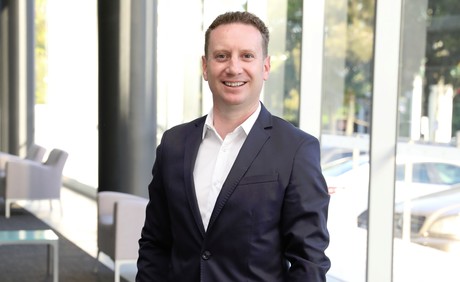2018 CEO Insights: Russell Palmer
By Russell Palmer, Managing Director, Yokogawa Australia and New Zealand
Tuesday, 16 January, 2018

What impact will big data and smart device technology have on your industry in 2018?
With only 0.5% of data analysed, there is a vast bank of performance data that remains untouched. The challenge is structure and sampling speed, which are not always conducive to simple analysis using traditional data mining techniques. Vendors must therefore take the lead so industry can benefit from big data and smart device potential. For example, by controlling the flow of data through installing intelligent edge devices, sophisticated analytics can be performed in the field, only pushing relevant data back to historians. This improves the speed of response and reduces the data lake size.
Process plants also need a risk-free approach. Mirror imaging your plant with a digital twin insulates the site from negative outcomes relating to big data related changes. Operators can see firsthand the impact of changes and tweak settings, free from risk to production or quality standards. Once satisfied, changes are brought online in a safe and controlled manner. Another piece of the puzzle in making big data and device analytics work for you.
What do you see as the biggest challenges that will face your industry in 2018?
Cybersecurity is undoubtedly one of the greatest challenges; for what is generally a conservative group of industries, the speed of new technology adoption can leave plants exposed. Yet convergence of information technology (IT) and operations technology (OT) teams does allow them to tackle the issue head-on. As sites employ more software solutions, the potential for hostile ingress grows, so merged teams will be critical in ensuring a secure environment.
Volatile commodity pricing will be another challenge for the process industries in 2018. As a nation, we are heavily reliant on resource exports. Once predictable market cycles are now shorter, with higher peaks and lower troughs. Planning is challenging in such times and companies that want to grow need to demonstrate greater agility, adapting to changing customer demand and expectations.
What are your clients demanding of you now that they didn’t demand five years ago?
Yokogawa’s major clients rely on our engineering capabilities more now than ever. As companies reduce costs, the strain on project, engineering and service departments increases exponentially. Yokogawa helps fill the void with highly skilled engineering resources, allowing clients to tackle complex challenges through process co-innovation. Working as a team, we create innovative new ways of tackling critical process issues and unlocking improvement potential.
The requirement to extend asset life is another trend, with clients looking to delay new capital investment as long as possible. The expectation is that this decision will not be detrimental to plant availability. We have a reputation for exceptional reliability and a strong support culture, which allows us to natively maintain and improve asset performance on older installations, aligning us with such expectations.
What is your industry doing to attract and retain young talent?
We are uniquely placed in an industry segment that is increasing in popularity with young talent. Obsolescence of some traditional technical and engineering skills has seen the emergence of a requirement suited to a demographic unencumbered by traditional industry concepts. Young talent at Yokogawa have input to meaningful work, where finding solutions for clients had not previously been the realm of inexperienced workers.
We provide flexible workspaces, access to exciting technology and invest in professional development as KPIs within the business. Recognising and rewarding is a continuous theme and pairs well with the individualised contributions of our young talent.
The number of students taking part in our university engagement program buoys my hope for a continuation of domestically trained, driven, young talent joining Yokogawa. Offering students bespoke learning placements allows the bright and ambitious to join us, cementing themselves as potential future leaders.
How is your industry preparing for cybersecurity challenges of the future?
Process industries are often viewed as slow to adopt new technologies. The reality is somewhat different, but technological change requires controlled management to protect process reliability, quality, availability and safety. These are all aspects that are subject to complex certification and validation, so new and more elaborate cybersecurity threats make protection an ongoing challenge.
With an ‘islanded’ approach less common in industry, security threats are being addressed by combined IT and OT departments to provide a more holistic view. This allows them to harden all aspects of their systems, providing a higher degree of protection. Many conduct ‘hackathons’, with external parties challenged to hack systems during a defined time frame. Results are analysed, with identified weaknesses reinforced to increase system integrity.
Plant security lifecycle services adhering to international standards are crucial. Experienced companies that provide threat mitigation guidance to enhance operational resilience are key to building a secure environment in the process industries.
Climate-friendly electricity from ammonia
Researchers the Fraunhofer Institute have developed a high-temperature fuel cell stack that can...
Digitalised, sustainable battery cell production
German researchers have developed a flexible winding system for battery cells that is embedded in...
Expired deadline threatens critical infrastructure as compliance lags
The deadline for achieving cybersecurity framework alignment for the SOCI Act expired on 17...












